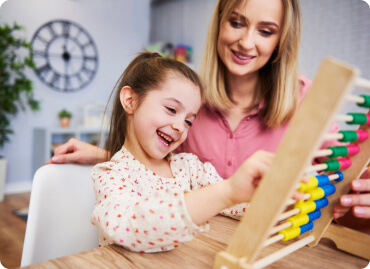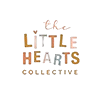A Journey Through Pregnancy and Postpartum, Backed by Science and Evolutionary Insights
Motherhood is a transformation like no other. It’s a primal, visceral experience—a shedding of one self and the tentative emergence of another. But no one told me about the grief. The kind that presses into your chest, asking you to hold space for the person you once were, even as you pour your soul into the person you’re becoming.
I didn’t anticipate grieving my old self.
The woman who had autonomy, who could wake up and choose the shape of her day. The woman who didn’t second-guess her every decision, her every instinct. She feels so far away now, like a memory of a dream. And I grieve her because I loved her, too. But it is in the grieving that I’ve come to realize something profound: she hasn’t disappeared. She’s evolving.
The Postpartum I Envisioned, and the One I Received
In the months before my baby was born, I dreamed of a postpartum cocoon—warm, gentle, restorative. I envisioned soft moments of bonding, support from loved ones, and an unshakable sense of connection.
Reality, however, was messy. Sleep-deprived nights blurred into days, my body ached in ways I couldn’t have anticipated, and I often felt alone in a crowded room. I found myself mourning the postpartum experience I had imagined.
There’s a quiet isolation in realizing that the world expects you to “bounce back” when every fiber of your being is still unraveling and reweaving itself.
Yet, in that isolation, I began to understand the rawness of this transformation. Postpartum isn’t just about healing physically—it’s about healing emotionally, too. And that kind of healing requires surrender, patience, and a willingness to face grief head-on.
Navigating Resentment and Finding Myself Again
I wasn’t prepared for resentment to creep into my motherhood story. It’s not something we talk about enough—the moments when you feel stretched so thin that you wonder where you end and everyone else begins.
I felt resentment toward my partner for being able to exist outside the gravity of parenthood in ways I couldn’t. Resentment toward visitors who came with expectations rather than support. And sometimes, resentment toward myself for struggling to embody the mother I thought I should be.
Resentment, I’ve learned, is often a sign of unmet needs. It taught me to look inward, to ask myself hard questions: What am I lacking? What boundaries need to be set? Where can I invite more grace into my life? Slowly, I began to release the weight of that resentment by honoring my feelings instead of suppressing them.

The Primal Instincts That Shape Us
Motherhood awakened something ancient within me—an undeniable, protective force that I couldn’t always explain. Science calls it the maternal instinct, an evolutionary adaptation designed to safeguard our offspring. But for me, it felt more profound, almost sacred.
I felt possessive, protective, and sometimes fierce in ways I didn’t recognize before. Every fiber of my being was wired to ensure my baby’s survival and well-being. This instinct demanded respect, and it taught me the power of boundaries.
Boundaries became my anchor—an act of love not only for myself but for my baby. They shielded us from unnecessary stress, created a sanctuary for bonding, and reminded others that motherhood is a deeply personal journey deserving of reverence.
The Science of Change
Biology and evolution paint a vivid picture of the metamorphosis we undergo as mothers. Hormones like oxytocin surge through us, deepening our bond with our babies. The brain undergoes structural changes, adapting to the demands of caregiving. Evolution has equipped us with the tools we need to survive and thrive in this new role.
But knowing this didn’t take away the complexity of my emotions. Instead, it helped me honor them. I wasn’t broken—I was transforming. Each tear, each moment of frustration, each sleepless night was part of a larger story, one that had been unfolding in mothers for millennia.

Healing Through Connection and Reflection
As I navigated this journey, I leaned heavily on the idea that grief and joy can coexist. I could mourn the person I once was while embracing the person I was becoming. I could feel the weight of resentment and still be a loving, present mother. I could long for the postpartum experience I’d imagined while finding beauty in the one I was living.
Motherhood is not a neat, linear process. It’s a metamorphosis—a breaking apart and a coming together. And like all transformations, it requires time, patience, and grace.
For Mothers Walking This Path
If you find yourself grieving, resenting, or questioning, know that you are not alone. Your feelings are valid, and your transformation is uniquely yours. It’s okay to mourn your old self, to feel disappointed by unmet expectations, to set boundaries that protect your peace.
Above all, it’s okay to evolve slowly.
Motherhood has taught me that there’s strength in surrender and resilience in vulnerability. And as I reflect on my own journey, I see not just the grief but the growth. I see a mother who is learning, loving, and becoming every single day.
To the mothers walking this path: you are enough. In your moments of doubt and struggle, you are still enough.
Written with love,
Kaitlin; The Little Hearts Collective


